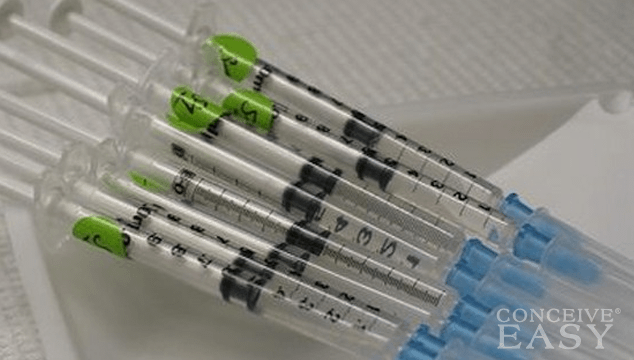
PolyCystic Ovarian Syndrome (PCOS) is a common medical condition that affects up to one in twenty women and is the one of the most common causes of infertility. PCOS can cause a number of symptoms and side effects, ranging from mild to moderate to very severe. Some of the most common symptoms of PCOS are things like irregular menstrual periods, excessive facial and body hair, hair thinning and even hair loss, weight gain (especially in the stomach), and even moderate to severe acne. Claim Your 20 Free Pregnancy Tests – Click Here

Doctors don’t know for sure the cause of PCOS in all women, but they do know that it has to do with insulin resistance in the body. A woman who is diagnosed with PCOS will often become insulin resistant at some point in her life. Doctors estimate that up to thirty percent of all women who are diagnosed with PCOS will eventually become insulin resistant. Doctors also think that contributing risk factors for PCOS are things like genetics, and hormonal imbalances as well.

While doctors aren’t entirely sure about the insulin/PCOS connection, there are a few things that they do know for sure. Our bodies use insulin to convert sugars and other starches into energy that the body uses or stores for later. When the body has high insulin levels, it is a sign that the body isn’t processing the insulin correctly. This can lead to increased blood sugar levels in the blood.

The increased blood sugar levels in the body are thought to trigger an increased production of androgens in the body. What are androgens? They are male hormones. As you can imagine, these are not a good thing when a woman’s body produces androgens. These male hormones, or androgens, are thought to be responsible for the negative side effects of PCOS, like weight gain, facial hair and acne. Androgens are a bad thing for a woman to have in her body.

While PCOS can cause insulin resistance, there are also a few other risk factors for insulin resistance in the body. One of the most common is family history. If your family has a history of heart disease, type 2 diabetes, or high blood pressure, you are at an increased risk of developing insulin resistance. Also, women who are over forty are also more likely to develop insulin resistance. Doctors think that being overweight is also a risk factor for insulin resistance.

If you think you might be insulin resistant or have PCOS, talk with your doctor. Insulin resistance is usually very easy to diagnose, and there are quite a few treatment options out there. Even if you just have the risk factors for insulin resistance, having a talk with your doctor will go a long way to relieve your stress and worry. Insulin resistance is often very treatable, so don’t worry if you think you might have it.










Comments